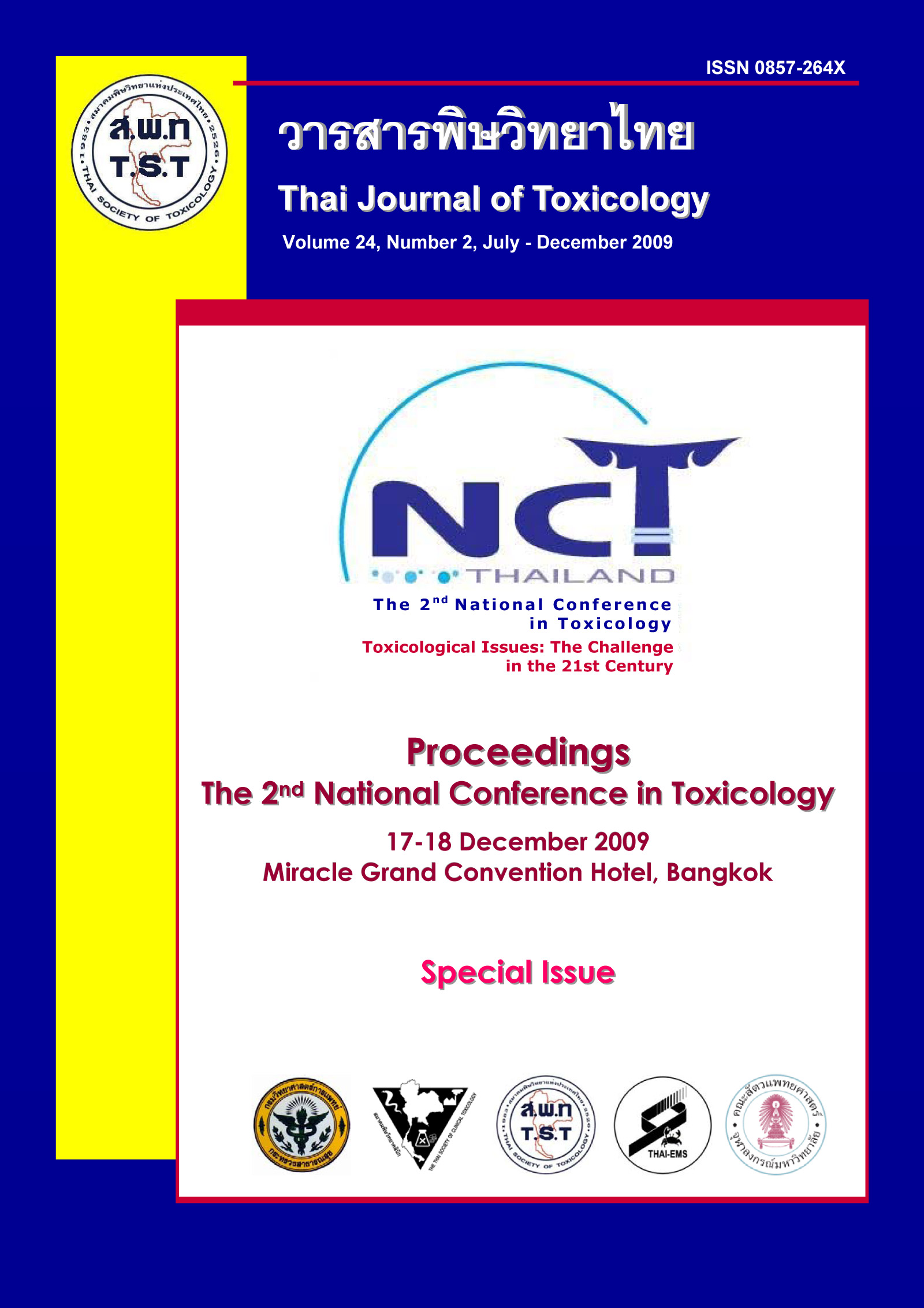Effects of Bran Extracts from Thai Molecular Breeding Rices on Growth and Apoptosis in Human Promyelocytic Leukemia Cells
Main Article Content
Abstract
Rice bran, the outer layer of brown rice, contains biologically active compounds which mediate chemopreventive properties. Thus, in the present study, we evaluated the anti-carcinogenic effects of bran extracts from non-pigmented (Sinlek) and pigmented (Riceberry) rices on human promyelocytic leukemia cell line (HL-60 cells). The results showed that the treatment with rice bran extracts for 24 and 72 hours reduced cell viability in a dose- and time-dependent manner. Riceberry rice bran extract showed higher cytotoxic activity, corresponding with the lower IC50 compared to Sinlek variety. The low concentrations of both rice bran extracts which did not affect cell viability were able to inhibit DNA synthesis, whereas the higher selected concentrations that reduced viable cells could induced apoptosis. The apoptotic events were confirmed by chromatin condensation and nuclear fragmentation in cells after AO/EB nuclear staining as well as dose- and time- dependent increase of caspase activity. The findings suggested that bran extracts of new Thai rice varieties exhibited growth inhibitory effects on the human leukemia cells through cytostatic and cytotoxic mechanism. The results also indicated that killing leukemia cells by rice bran extracts partially involved activation of caspases and induction of apoptosis


